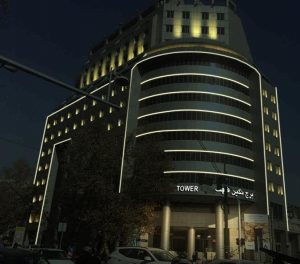Iran Customs Law : Part III Customs Formalities prior to the declaration
Part III Customs Formalities prior to the declaration
Article 18: Carrier companies shall be obliged, when the means of transport enters the customs territory, draw up two copies of summarized declarations and attach each of them a copy of the manifest and if needed, the bills of lading of each item of the manifest as necessary, and submit them to the customs and goods with holding authority , and in case a mean of transport is empty, a summarized declaration expressing that it is empty shall be submitted. Summarized declaration shall be in Persian language and prepared according to the sample which shall be prepared by the customs in coordination with the withholding authorities, without any erasing, correction and obliteration.
Note 1: Responsibility of transportation companies when drawing up and submitting a summarized declaration with a view to the contents of sealed packages shall be limited to the contents of the relevant bills of lading. Loaded and sealed containers by the consignor shall be considered as sealed packages.
Note 2: The provision of this article shall not include imported goods into the customs territory from free trade – industrial and exclusive economical zones.
Article 19: Unloading of goods in customs premises shall be subject to consent of the customs. Withholding authority shall, before unloading the goods, coordinate with the customs.
Note: Arrangements for monitoring unloading and the manner of indexing, acceptance, delivery, stowing, registering in books and drawing up minutes of meeting and the manner of settlement of cargo of means of transport and arrangement of delivery of the goods to customs warehouses shall be determined in bylaw of this law.
Article 20: If the carrier company, after submitting a summarized declaration and its accompanying manifest, submit another declaration and manifest to the customs and withholding authority in order to modify or supplement prior declaration, such manifest and modified or supplemented declaration shall be accepted, provided that they are submitted before the start of unloading operations.
Note: If corrected items are not related to the type of goods and number of packages, the customs shall also accept such modified or supplemented manifest and declaration, after unloading and before the issuance of delivery order.
Article 21: Where at the time of final delivery of the cargo of a means of transport to withholding authority and comparing it with contents of summarized declaration and its accompanying manifest, there are differences with respect to the number of packages delivered, a minutes of meeting shall immediately be formulated on the issue and signed by representative of carrier company, officials of withholding authority and the customs monitoring of ficials. The carrier company shall, with respect to such differences, be treated in accordance with article 104 of this law.
Note: The containers for which at destination of bill of lading, summarized declarations as multi-consignments (LCL) are formulated and submitted to withholding authority , shall be unloaded at designated place at the request of the international transport companies which hold general delivery order and submit separate bills of lading. Then a separate warehouse receipt shall be issued and in case of mismatch of the number of packages in each bill of lading with unloaded packages, the provisions of this article shall be applied.
Article 22: All functions of the transport companies under this law may be performed by their authorized representative. In this case such representative shall undertake all related airport, port and customs responsibilities.



